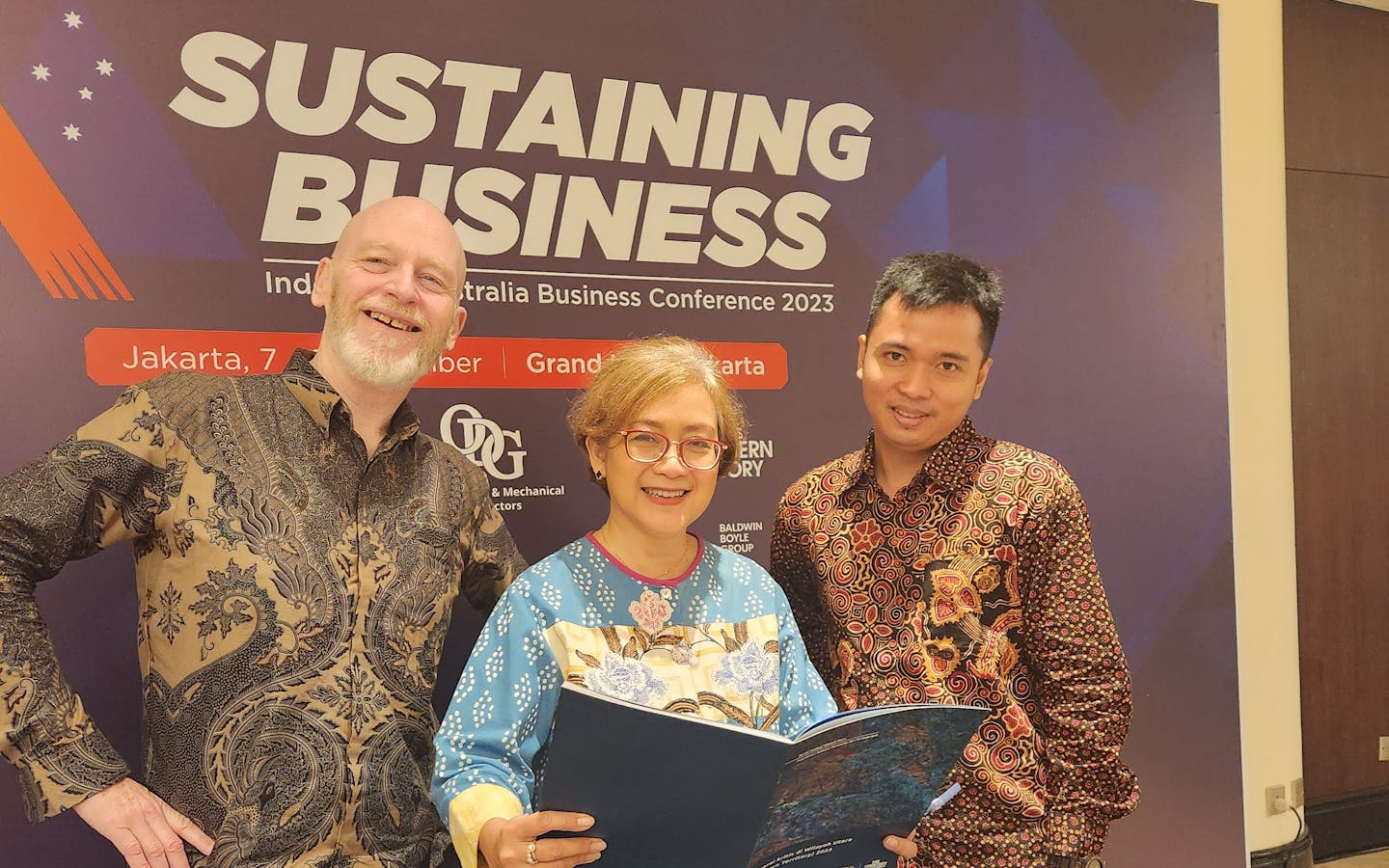
Indonesia and Australia obvious bedfellows – so why are we all so late to the party?
In life, there is always a reason not to do something, and Australian businesses and investors seem to have too often found those reasons not to invest in Indonesia.
A good game has been talked over the years, including at conferences like the Indonesia Australia Business Council (IABC) event in Jakarta on Wednesday and Thursday this week (8-9 November), where leading government, business and academic figures from both countries will participate.
Yet in 2023, we’re yet to realize the potential of our bilateral relationship.
In early September, the Australian Government launched a significant report – Invested: Australia’s Southeast Asia Economic Strategy to 2040, by Nicholas Moore AO, Australia’s Special Envoy for Southeast Asia.
It is a substantial document in every sense, and without doubt its themes will underpin aspects of the thinking at this week’s conference. The report identifies that Indonesia will be one of the world’s largest economies by 2040 – just 17 short years away. It assesses that Indonesia may attain top-10 economy status in the next decade and top five by 2040.
With two-way trade of AUD $23.3 billion and investment back and forth at AUD $3.9 billion last year, the Indonesia-Australia relationship is substantial by any measure, but proportionately, it falls short of some of our other bilateral relationships – notably in terms of Australian investment in Indonesia.
Asia will grow by a further 250 million people by 2030. That’s about nine and a half Australia's. Food demand in Southeast Asia will rise by 40% by 2050.
So, if we back-of-the-envelope this and put those frameworks across the areas that the Australian report identifies as “sectors to watch” in the Indonesia-Australia relationship – agriculture and food, green energy transition, education and skills, and healthcare – we quickly get to some serious numbers in terms of trade and investment potential.
Then put this exponential population growth into future sustainable energy requirements, expected physical and digital infrastructure needs, and you will quickly find that you need a bigger envelope.
The Moore report identifies obstacles that need shifting, and among these are encouraging bilateral recognition of qualifications in each direction, establishing better halal mechanisms on the Australian producer side, and progressing a memorandum of understanding on creative economy collaboration.
All important and all true. But there are other factors: A reality is that Australians don’t always feel their investments are secure in Indonesian systems. Security is a fundamental expectation. A step in that direction will surely be successful national elections here in Indonesia next February.
Another factor is less systemic and more relational. A 2016 Australia-Indonesia Centre survey found that over 57% of Australians – including its future business leaders – did not feel any warmth or trust towards Indonesians. One suspects that little has changed in the seven years since.
Indeed, as recently as July this year that was confirmed by Australia’s prestigious Lowy Institute, with 19 years of polling under its belt that has consistently shown a lukewarm relationship. It’s 2023 poll findings placed Australian warmth towards Indonesia ahead of only Myanmar, China and Russia. Let’s just say, there’s work to be done.
Neighbors we might be, but perhaps we default too easily to old myths, preconceptions and tensions on both sides.
If this week’s conference can take us a step or two forward in unpacking, dismantling and moving on from some of these to a more-informed relationship, it will be no mere ‘talk-fest’.
There is also shiny object syndrome: Australia – and, let’s be honest, the rest of the world – has more focus, intent and energy directed at the global giants, China and India. But as the report notes, Indonesia is fast heading to that top table, gearing towards being the top five economy in the world by 2045. So, to overlook it is to miss a large and growing opportunity.
The Moore report notes another task in our relationship: “Explore opportunities to assist with environmental, social and governance standards and reporting in the resources sector.”
I imagine this is on cut and paste – no relationship has a future without it.
In the recent words of a colleague in our Singapore office: “In this space, navigating highly nuanced social, ethical and regulatory matters, staying ahead of issues, building support from all stakeholders and maintaining a strong social licence to operate is business critical.”
For “in this space”, read “in any space”. Indonesia, Australia, anywhere.
Business will not succeed without social licence to operate; without protecting its social capital. This applies to Indonesian businesses coming into Australia, and to Australian business wanting a presence on our shores.
And environmental, social and governance standards – ESG – is one of the complex realities of doing business today in a connected and inquisitive media landscape.
Now, try to do it in a different culture, with different languages, different thinking and different politics. Then throw in social media, where news, fact-based and otherwise, spreads like the proverbial wildfire, and reputational damage is a headline away.
Then add batik.


